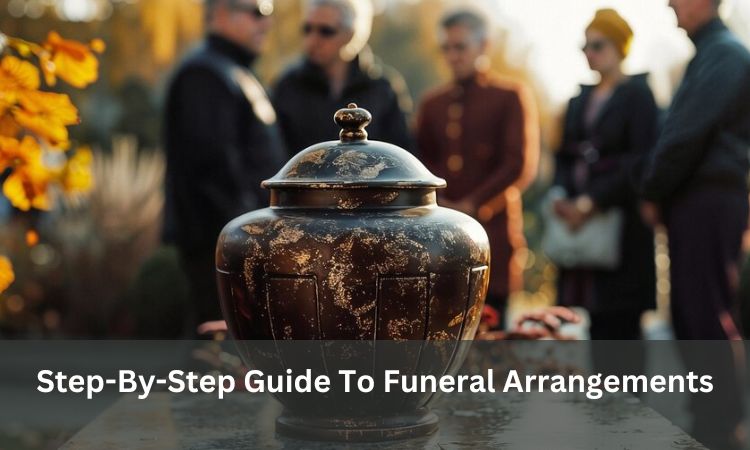Losing a loved one is never easy, and planning a funeral during this difficult time can feel overwhelming. However, understanding the necessary steps can help make the process a little easier. Here’s a simple guide to help you navigate funeral arrangements with care and compassion.
- Notify Family and Close Friends
The first thing to do after a death occurs is to inform close family members and friends. It’s important to be surrounded by loved ones for emotional support. Gather your family to discuss what needs to be done next.
- Choose the Type of Service
Funeral services can vary depending on personal or religious preferences. The main types of services are:
- Traditional Funeral Service: A ceremony where family and friends gather, followed by burial or cremation.
- Memorial Service: A service that is often held after the body has been cremated or buried.
- Direct Burial or Direct Cremation: This is a simpler option with no ceremony, often followed by a private family gathering.
Talk with the family or consider the deceased’s wishes to decide what kind of service feels right.
- Burial or Cremation
A major decision is whether the deceased will be buried or cremated. This choice often depends on religious beliefs, cultural traditions, or personal preference.
- Burial involves purchasing a plot and choosing a casket.
- Cremation means choosing an urn to hold the ashes, with options to keep, scatter, or memorialize them.
Discuss these options with the family and consider what the deceased would have wanted.
- Select a Funeral Home
Selection of the right funeral home is an important step. They will help with all the logistics, including transporting the body, selecting caskets or urns, and arranging the ceremony. Funeral homes often have packages that cover different services, making it easier to plan.
- Gather Necessary Documents
- Death Certificate: This official document is needed for legal and financial matters.
- Will or Trust Documents: These may include the deceased’s wishes regarding the funeral.
- Life Insurance Policy: If there’s a life insurance policy, it may help cover funeral costs.
These documents will help you handle the necessary legal and financial tasks after the funeral.
- Make Financial Arrangements
Funeral costs can be high, so it’s important to discuss how to pay for the service. The funeral home can provide an estimate of the costs, and you can decide whether to use funds from the deceased’s estate, life insurance, or contributions from family and friends.
- Plan the Funeral Service Details
Now that the main decisions are made, it’s time to plan the details of the funeral service:
- Officiant: This person will lead the ceremony, such as a religious leader, a celebrant, or a family member.
- Speakers: You may want to invite family members or friends to share memories or read poems.
- Music: Songs or hymns that were meaningful to the deceased is important.
- Flowers: Select floral arrangements for the ceremony to bring comfort and beauty.
You can also personalize the service with photos, videos, or special memories that reflect the life of the deceased.
- Create Obituaries and Announcements
An obituary is an announcement of the death and funeral details. You can publish it in the local newspaper or share it online. The obituary often includes a brief summary of the person’s life, family members, and the details of the funeral service.
- Plan Transportation and Logistics
If the funeral involves multiple locations, you’ll need to arrange for transportation. This could include a hearse, vehicles for close family members, and transportation for guests. If there’s a cemetery involved, ensure that guests know how to get there.
- Provide Grief Support and Aftercare
After the funeral, the grieving process doesn’t end. Many funeral homes offer grief counseling services or can recommend support groups for the family. It’s important to give yourself time to heal and reach out for support if needed.
While planning a funeral can feel overwhelming, knowing what to do can make the process a little more manageable. Remember, a funeral is a chance to honor the life of your loved one and provide comfort to those left behind.
If you need help with funeral arrangements, Antim Journey offers expert services to guide you every step of the way. From handling all the details to providing emotional support, they ensure that your loved one’s final journey is meaningful and respectful.

